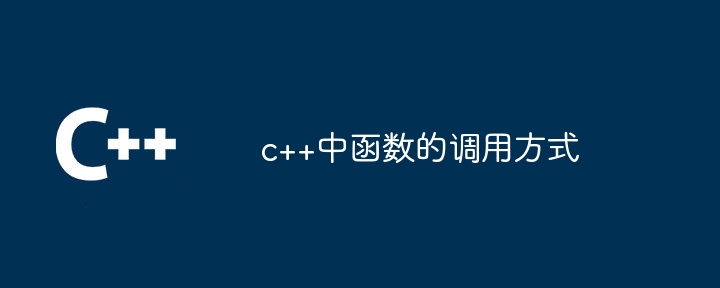Home >Backend Development >C++ >How to call functions in c++
How to call functions in c++
- 下次还敢Original
- 2024-05-06 18:24:18678browse
There are two ways of calling functions in C: value calling and reference calling. A value call passes a copy of the parameter and does not affect the original variable; a reference call passes a parameter reference, and modifying the reference will affect the original variable. Based on the function purpose and efficiency considerations, choose the appropriate calling method: value calling protects the original variable, and reference calling modifies the original variable.

How to call functions in C
In C, there are two main ways to call functions: value Calls and reference calls.
Value calls
Value calls pass a copy of the function parameters. When the function is executed, any modifications made to the copy of the parameters will not affect the original variables.
<code class="cpp">void increment(int x) {
x++; // 仅修改副本
}
int main() {
int y = 5;
increment(y); // 不会修改 y 的值
cout << y; // 输出 5
return 0;
}</code>
Reference call
Reference call passes the reference of the function parameter. When the function is executed, any modifications to the parameter references will affect the original variables.
<code class="cpp">void increment(int& x) { // 接受引用作为参数
x++; // 修改原始变量
}
int main() {
int y = 5;
increment(y); // 会修改 y 的值
cout << y; // 输出 6
return 0;
}</code>
Select the calling method
Which calling method to choose depends on the purpose of the function and efficiency considerations:
-
Value call:
- Used when the original variable needs to be protected from modification by the function.
- is more efficient for passing large structures or class types because unnecessary copies are avoided.
-
Reference call:
- Use when the function needs to modify the original variable.
- is more efficient for passing basic types because unnecessary copies are avoided.
#Understanding these two calling methods is critical to using C functions efficiently and safely.
The above is the detailed content of How to call functions in c++. For more information, please follow other related articles on the PHP Chinese website!

